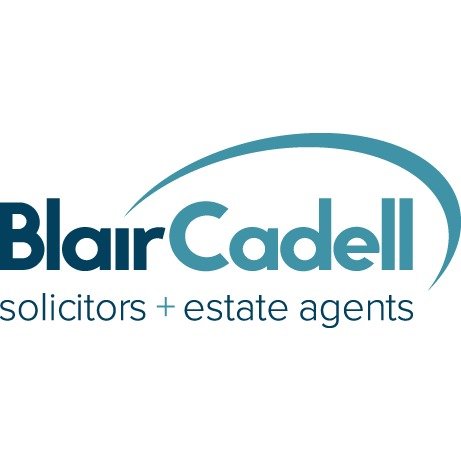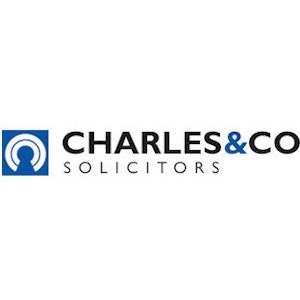Best Merger & Acquisition Lawyers in United Kingdom
Share your needs with us, get contacted by law firms.
Free. Takes 2 min.
Or refine your search by selecting a city:
List of the best lawyers in United Kingdom
About Merger & Acquisition Law in United Kingdom
Merger and Acquisition (M&A) law in the United Kingdom governs the combination of different companies into a single entity or the acquisition of one business by another. This area of law covers various legal aspects that arise during such transactions, including due diligence, asset acquisition, and regulatory compliance. The UK has a rich history of M&A activity, driven by its strong financial markets, diverse economy, and robust legal frameworks. The regulatory environment is primarily shaped by the Companies Act 2006, the City Code on Takeovers and Mergers, and relevant European Union legislation (where applicable, pending ongoing changes due to Brexit).
Why You May Need a Lawyer
Engaging in M&A transactions can be complex and fraught with legal challenges. Here are common situations where you may need legal advice:
- Due Diligence: A lawyer can help conduct thorough investigations into the target company's legal, financial, and operational status.
- Negotiation and Drafting: Legal expertise is crucial for negotiating terms and drafting comprehensive agreements that protect your interests.
- Regulatory Compliance: Navigating the regulatory landscape is essential to ensure compliance with UK laws and regulations, such as obtaining necessary approvals and adhering to competition laws.
- Deal Structuring: Structuring the deal efficiently can have major tax and financial implications, where legal counsel can provide substantial value.
- Dispute Resolution: In case of conflicts arising during or after the transaction, a lawyer can assist in resolving disputes through mediation, arbitration, or litigation.
Local Laws Overview
The UK legal framework for M&A is influenced by a variety of local laws and regulations:
- Companies Act 2006: This is the primary source of company law, covering essential aspects like duties of directors and corporate governance.
- City Code on Takeovers and Mergers: Administered by the Takeover Panel, this code governs the conduct of takeover bids for listed companies in the UK.
- Competition Law: The Competition and Markets Authority (CMA) oversees merger control to prevent anti-competitive practices.
- Employment Law: TUPE (Transfer of Undertakings Protection of Employment) regulations affect employee rights in business transfers.
- Tax Law: Tax implications of M&A are significant and require planning to optimize financial outcomes.
Frequently Asked Questions
What is the role of the Takeover Panel in UK M&A?
The Takeover Panel ensures fair and efficient processes for public company takeovers in the UK, administering the City Code on Takeovers and Mergers.
How do competition laws affect M&A in the UK?
The Competition and Markets Authority (CMA) reviews M&A transactions to prevent deals that could reduce competition and harm consumers.
What is due diligence in M&A?
Due diligence is an investigative process carried out by a buyer to assess the legal, financial, and operational status of a target company before concluding a deal.
Is TUPE relevant to M&A transactions?
Yes, TUPE protects employees' rights when a business or service is transferred to a new employer, which is directly relevant in most M&A deals.
What steps should be followed in the UK merger process?
Typical steps include deal preparation, due diligence, agreement on terms, regulatory approval, and completion, among others.
How are M&A deals typically financed?
Financing options include cash transactions, stock swaps, debt financing, or a combination of these methods.
What should I consider when negotiating an M&A deal?
Consider factors like price, payment structure, liabilities, future employment terms, and compliance with applicable laws.
Can a hostile takeover occur in the UK?
Yes, hostile takeovers can occur when a company attempts to acquire another company without the agreement of its board.
How does Brexit impact M&A in the UK?
Brexit has affected regulatory alignment with the EU, altering market dynamics and impacting cross-border M&A strategies.
What are the tax considerations in M&A transactions?
Tax considerations include capital gains, VAT, stamp duty, and corporate tax implications, requiring strategic planning to optimize outcomes.
Additional Resources
Consider consulting the following resources for further information:
- Takeover Panel: Oversees the conduct of takeovers in the UK.
- Competition and Markets Authority: Regulates competition issues in mergers and acquisitions.
- Law Society of England and Wales: Provides resources and guidance for selecting legal professionals.
- UK Government Portal: Offers comprehensive information on company law and regulations.
Next Steps
If you need legal assistance in M&A, consider the following steps:
- Identify Your Needs: Determine the specific aspects of your M&A transaction where legal advice could be beneficial.
- Research Potential Legal Firms: Look for law firms with proven expertise in M&A and a strong track record in the UK market.
- Seek Initial Consultations: Contact law firms to arrange initial consultations to discuss your case and gauge their suitability.
- Evaluate and Engage a Lawyer: Evaluate your options and engage a lawyer who understands your business and can provide strategic insights for your M&A deal.
- Ongoing Communication: Maintain open and regular communication with your lawyer throughout the transaction process to ensure all legal aspects are thoroughly covered.
Lawzana helps you find the best lawyers and law firms in United Kingdom through a curated and pre-screened list of qualified legal professionals. Our platform offers rankings and detailed profiles of attorneys and law firms, allowing you to compare based on practice areas, including Merger & Acquisition, experience, and client feedback.
Each profile includes a description of the firm's areas of practice, client reviews, team members and partners, year of establishment, spoken languages, office locations, contact information, social media presence, and any published articles or resources. Most firms on our platform speak English and are experienced in both local and international legal matters.
Get a quote from top-rated law firms in United Kingdom — quickly, securely, and without unnecessary hassle.
Disclaimer:
The information provided on this page is for general informational purposes only and does not constitute legal advice. While we strive to ensure the accuracy and relevance of the content, legal information may change over time, and interpretations of the law can vary. You should always consult with a qualified legal professional for advice specific to your situation.
We disclaim all liability for actions taken or not taken based on the content of this page. If you believe any information is incorrect or outdated, please contact us, and we will review and update it where appropriate.
Browse merger & acquisition law firms by city in United Kingdom
Refine your search by selecting a city.
















